How Do I Transfer Photos From Iphone To My Computer
The reality of our device-rich world is this: you'll sometimes have a phone or tablet that isn't the same make as your computer. To make matters worse, you might have photos on your iPhone or iPad that you want transferred to your Windows 10 PC. Here are a few simple methods that will get your photos where you want them.
Products used in this guide
- Get hooked up: AmazonBasics Lightning to USB A Cable ($7 at Amazon)
- Bring your iPhone to PC: iTunes for Windows 10 (Free at Microsoft)
- Photos on-the-go: iCloud for Windows 10 (Free at Microsoft)
Our guide
- How to download and install iTunes
- How to transfer iPhone and iPad photos using File Explorer
- How to transfer iPhone and iPad photos using the Windows 10 Photos app
- How to transfer iPhone or iPad photos using iCloud
How to download and install iTunes
For your PC to recognize the iPhone or iPad in File Explorer, you'll first need to install iTunes. Here's how to do it.
- Launch the Microsoft Store from the Start menu, taskbar, or desktop.
-
Search for iTunes on the Microsoft Store.
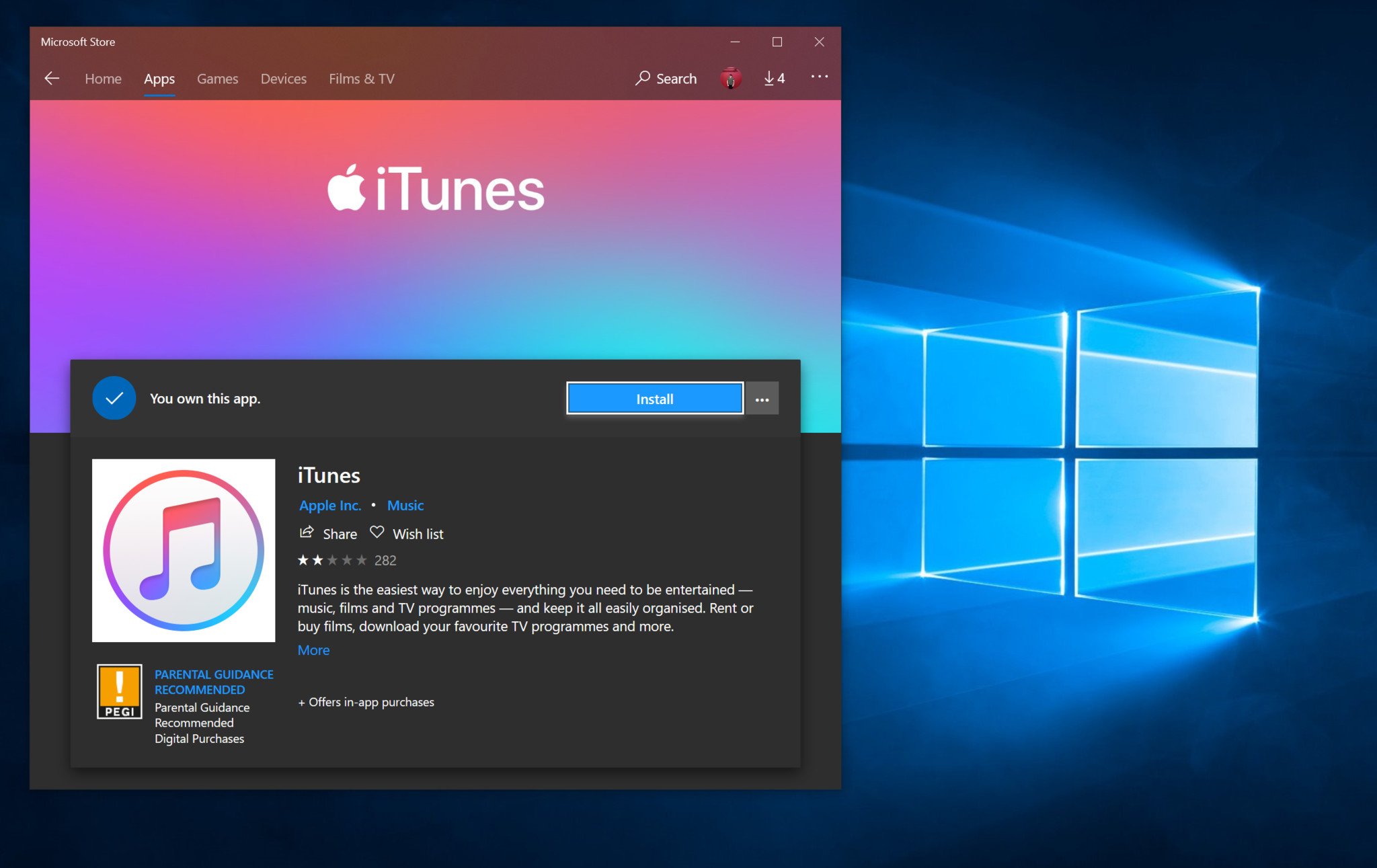 Source: Windows Central
Source: Windows Central - Click Get. iTunes will now download to your PC.
-
Click Launch once the download is complete.
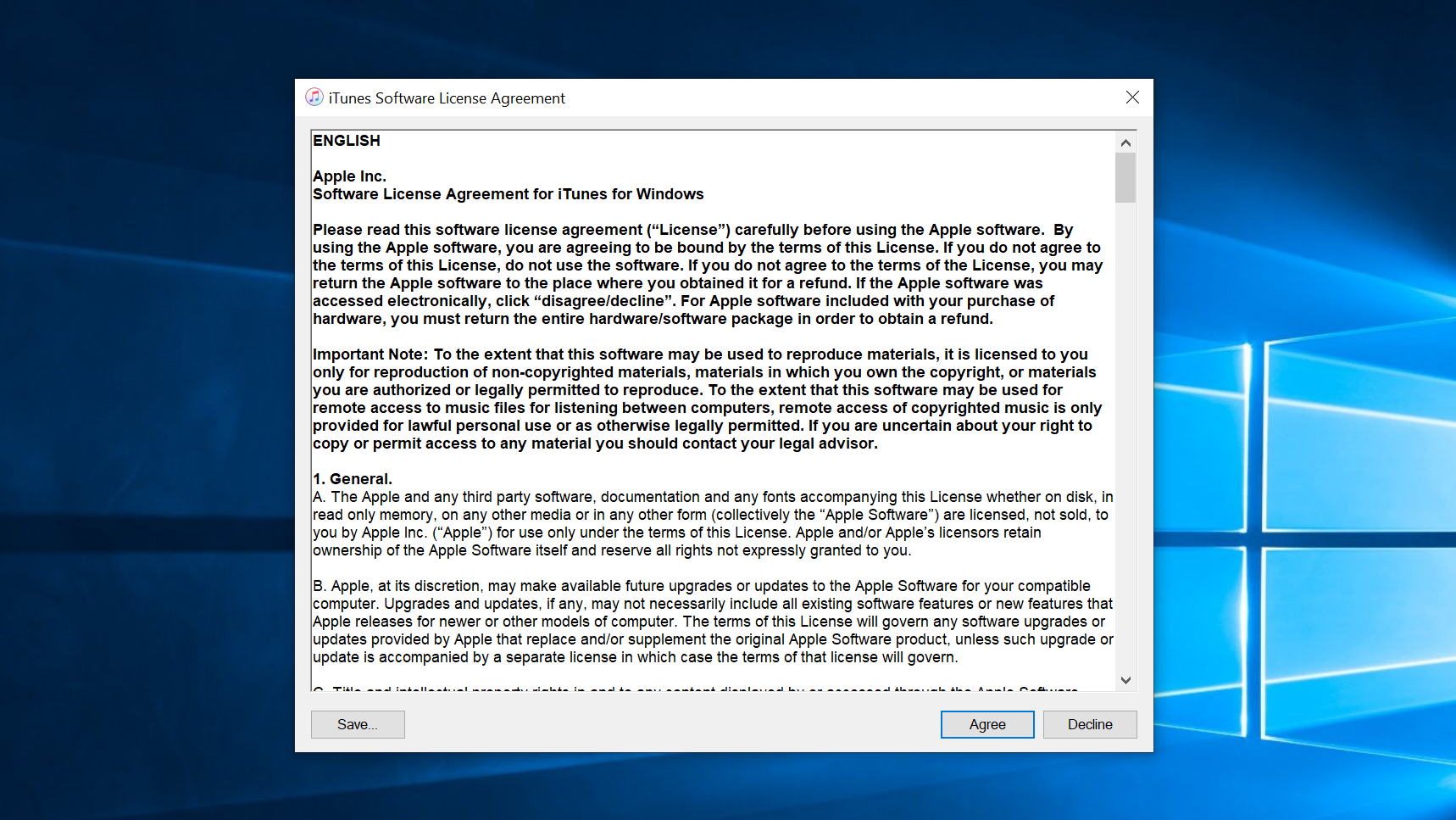 Source: Windows Central
Source: Windows Central - Click Agree to accept the iTunes Software License Agreement. iTunes is now installed.
Alternatively, you can download iTunes from Apple if you're using a Windows version prior to Windows 10. Folks using older versions of Windows will need to install the traditional application, although it offers identical features.
How to transfer iPhone and iPad photos using File Explorer
Using File Explorer to transfer photos from iPhone and iPad won't take long. Install iTunes first, then follow these steps:
Shop Cyber Monday deals at: Amazon | Walmart | Best Buy | Microsoft | Dell
- Plug your iPhone or iPad into your PC using a suitable USB cable.
- Launch Windows Explorer from your desktop, Start menu, or taskbar. You can also use the Windows key + E shortcut on your keyboard.
-
Click the arrow next to This PC in the menu on the left side of the window. The arrow looks like >.
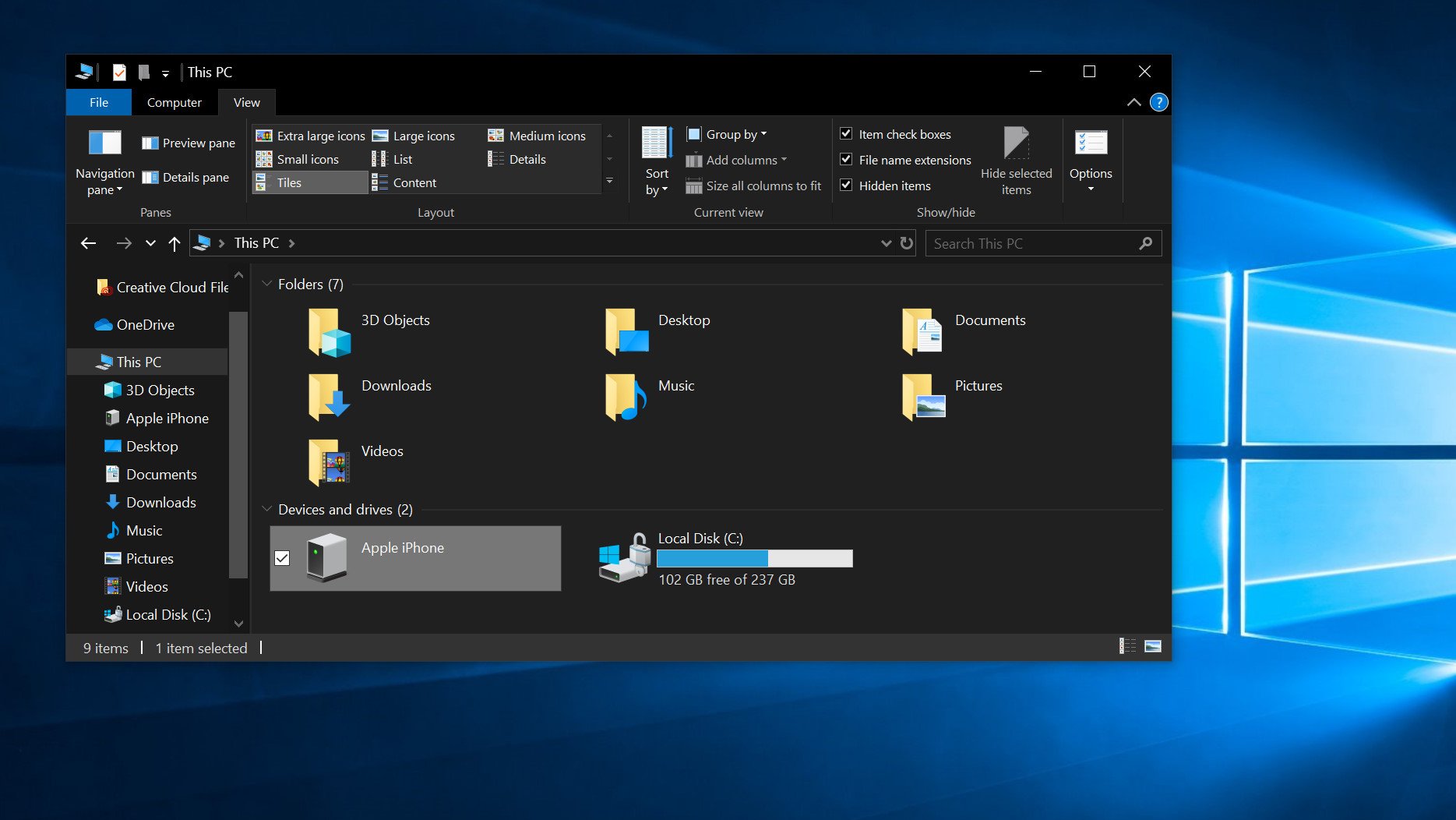 Source: Windows Central
Source: Windows Central - Click NAME's iPhone or NAME's iPad in the This PC sub-menu.
- Double-click Internal Storage.
-
Double-click DCIM.
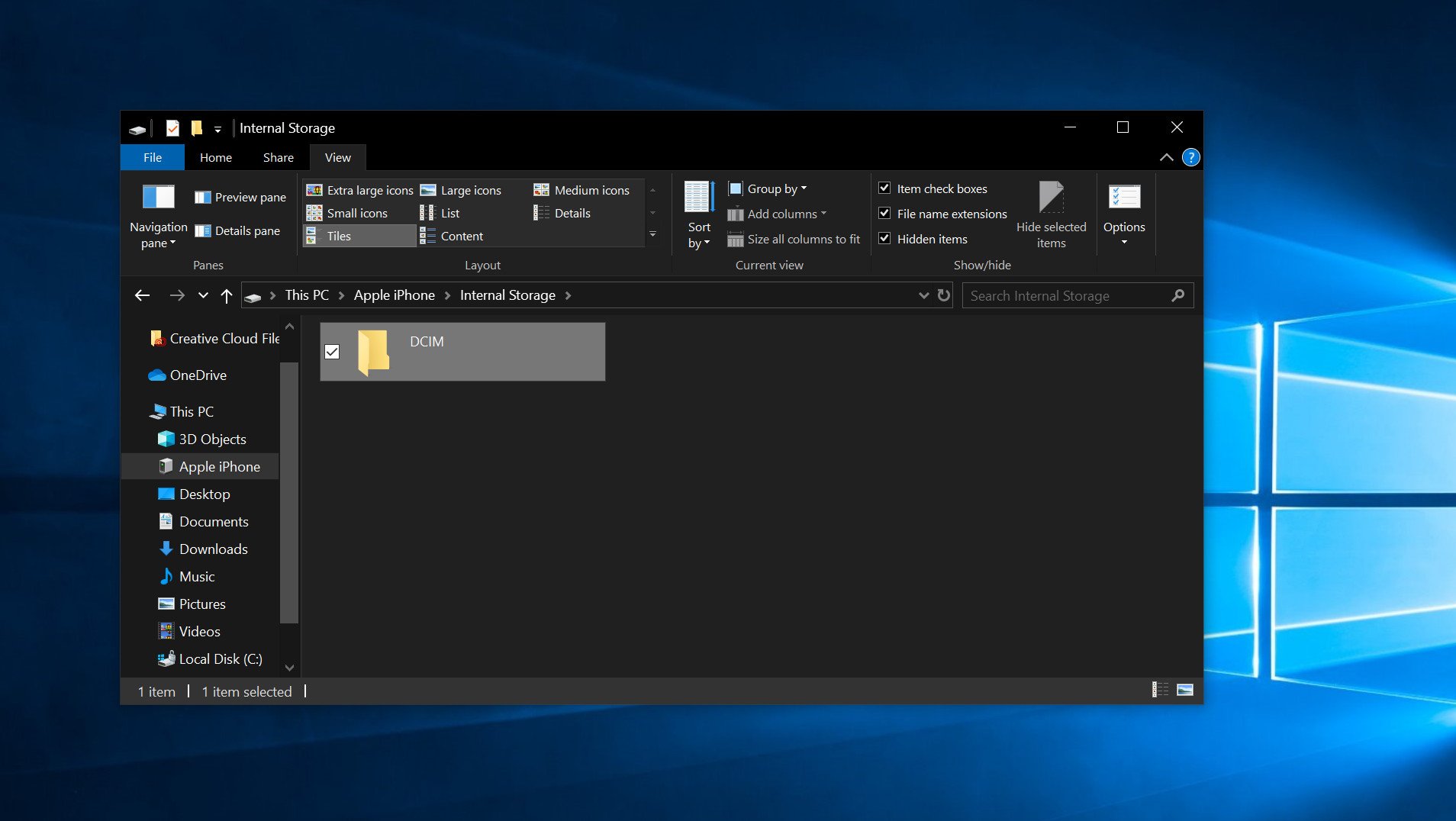 Source: Windows Central
Source: Windows Central - Double-click a folder. They should all contain images.
-
Click an image. You can hold the Ctrl key on your keyboard and click to select multiple images. You can also use the Ctrl + A shortcut on your keyboard to select all photos at once.
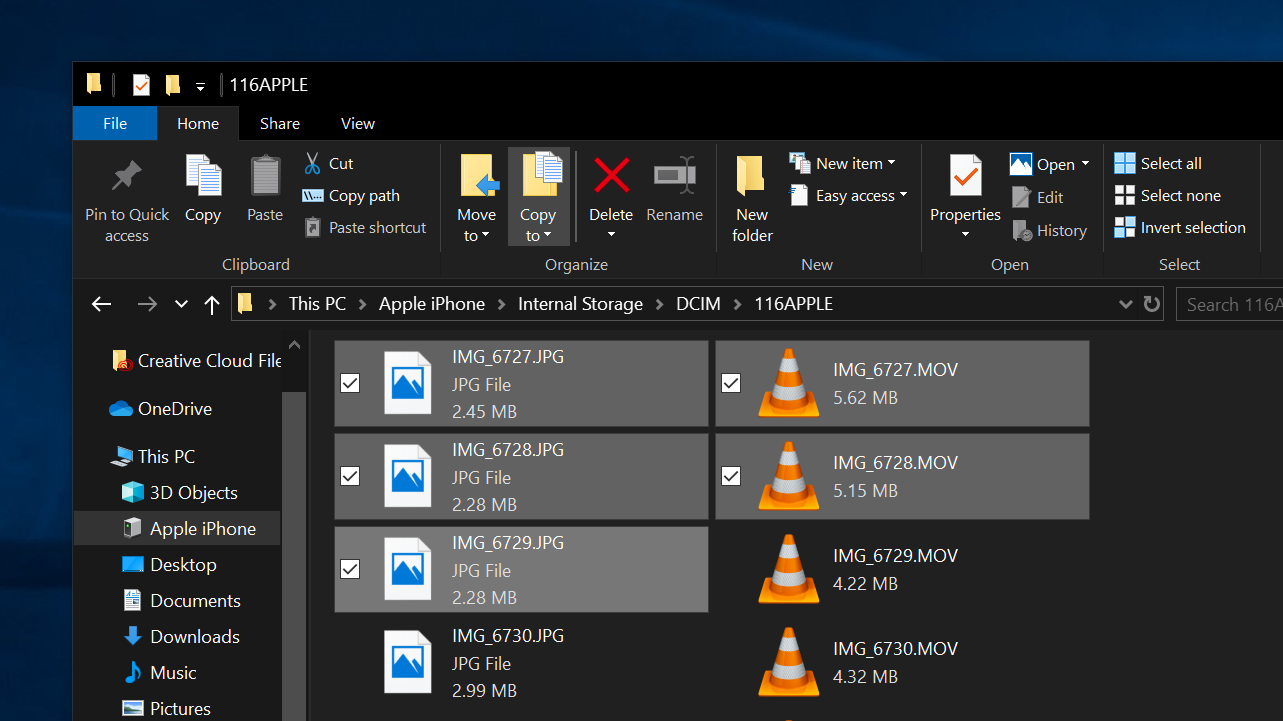 Source: Windows Central
Source: Windows Central - Click Copy to — it is located near the top of the window.
- Click Choose location… to select a location. You can also click one of the options listed in the dropdown menu.
- Click a destination to save the pictures.
- Click Copy. Make sure you don't unplug your iPhone or iPad during the process!
How to transfer iPhone and iPad photos using the Windows 10 Photos app
If you'd like to import all photos from your iPhone or iPad at once, you can use the handy Photos app that comes standard with Windows 10. Here's how to do it.
- Plug your iPhone or iPad into your PC using a suitable USB cable.
- Launch the Photos app from the Start menu, desktop, or taskbar.
-
Click Import. It is located in the top-right corner of the window.
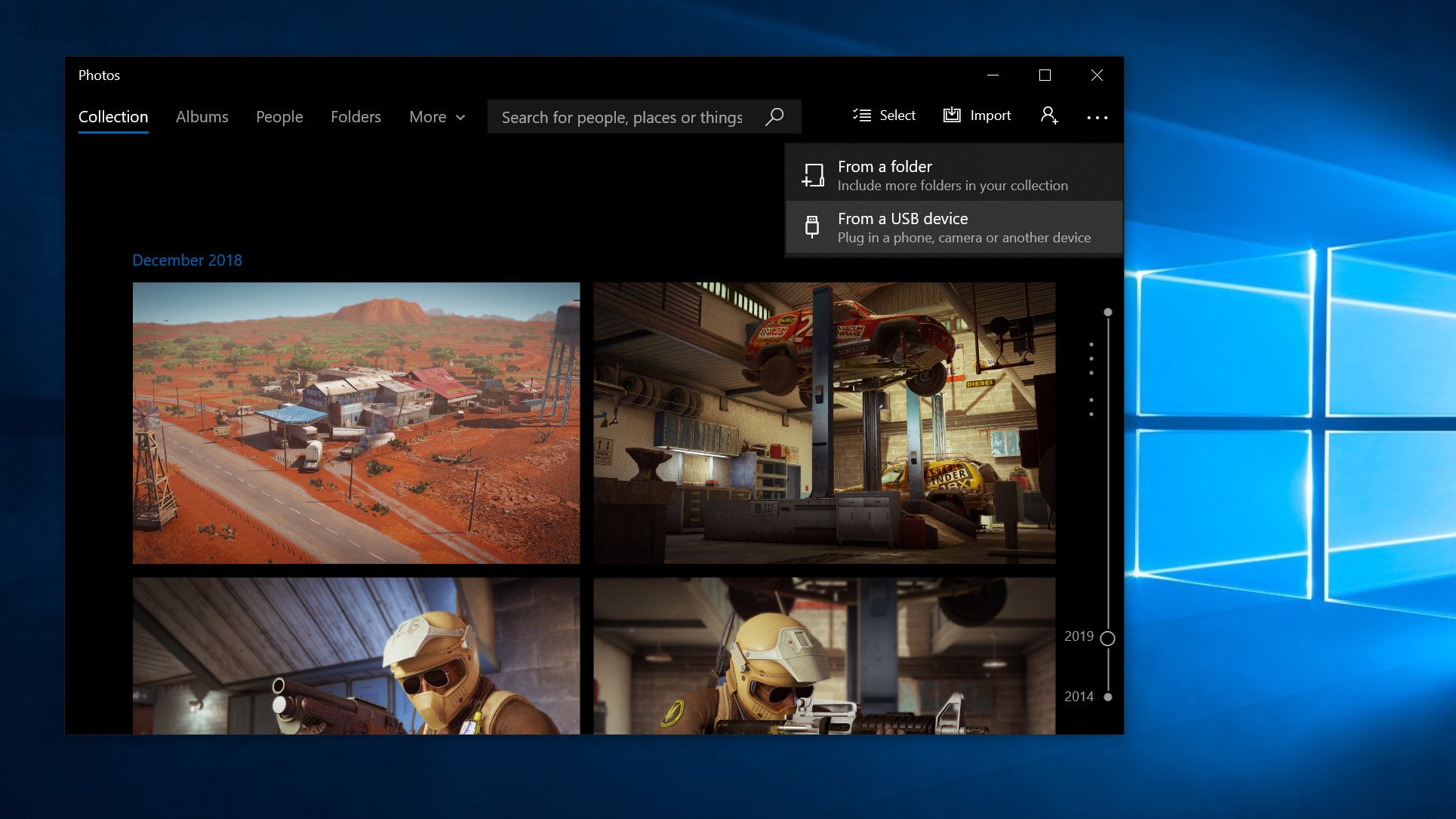 Source: Windows Central
Source: Windows Central - Click any photos you'd like to not import; all new photos will be selected for import by default.
- Click Continue. The Photos app will begin the import process. Make sure you don't unplug your iPhone or iPad during the process!
How to transfer iPhone or iPad photos using iCloud
Windows 10 has the ability to use iCloud to wirelessly sync your photos as long as you've backed up the photos on your iPhone or iPad to iCloud. Here's how to do it.
- Launch the Microsoft Store from the Start menu, taskbar, or desktop.
-
Search for iCloud on the Microsoft Store.
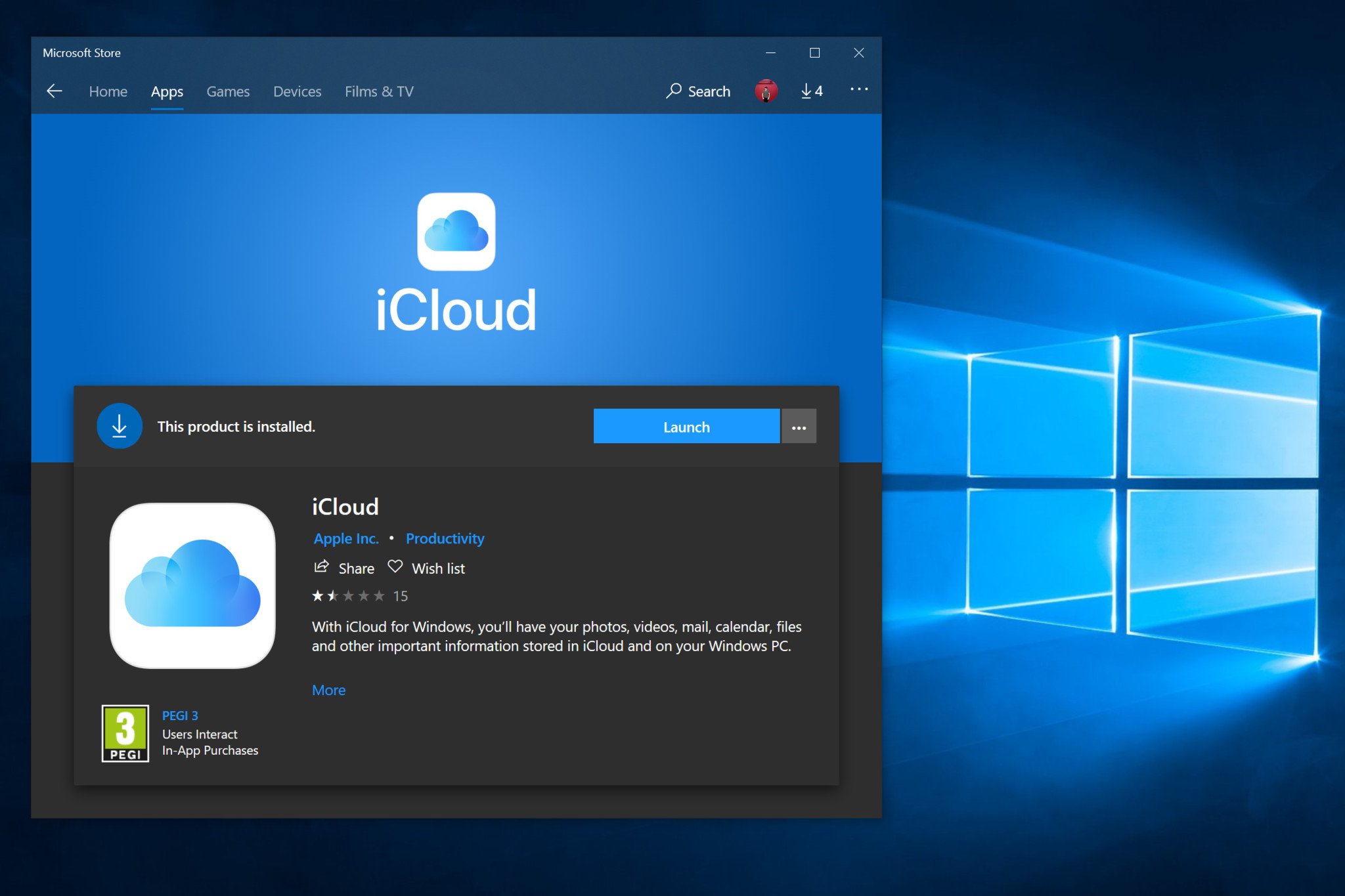 Source: Windows Central
Source: Windows Central - Click Get. iCloud will now download to your PC.
- Click Launch once the download is complete.
- Type your Apple ID.
-
Type your password.
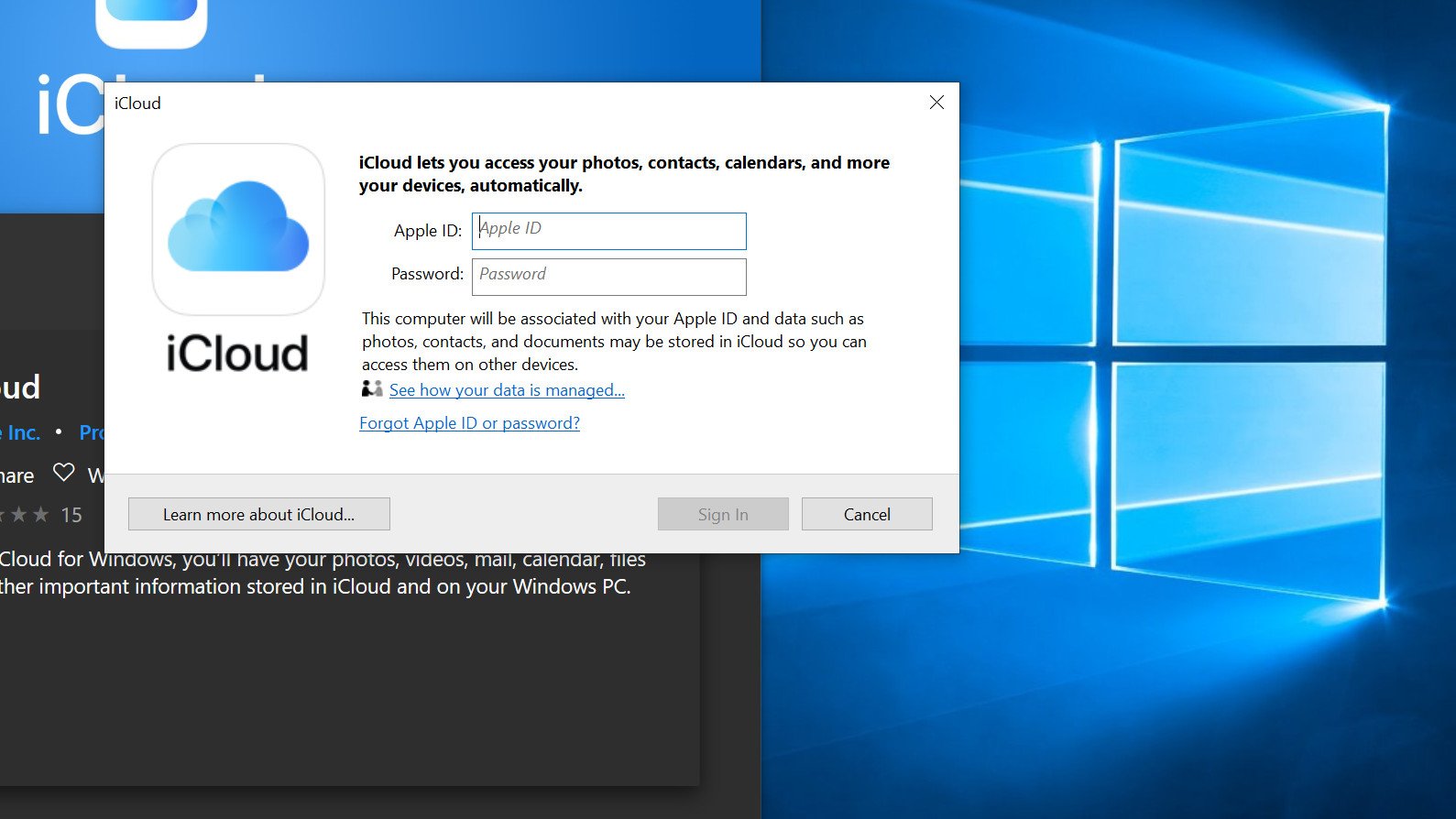 Source: Windows Central
Source: Windows Central - Click Sign In.
-
Click the Options button next to Photos.
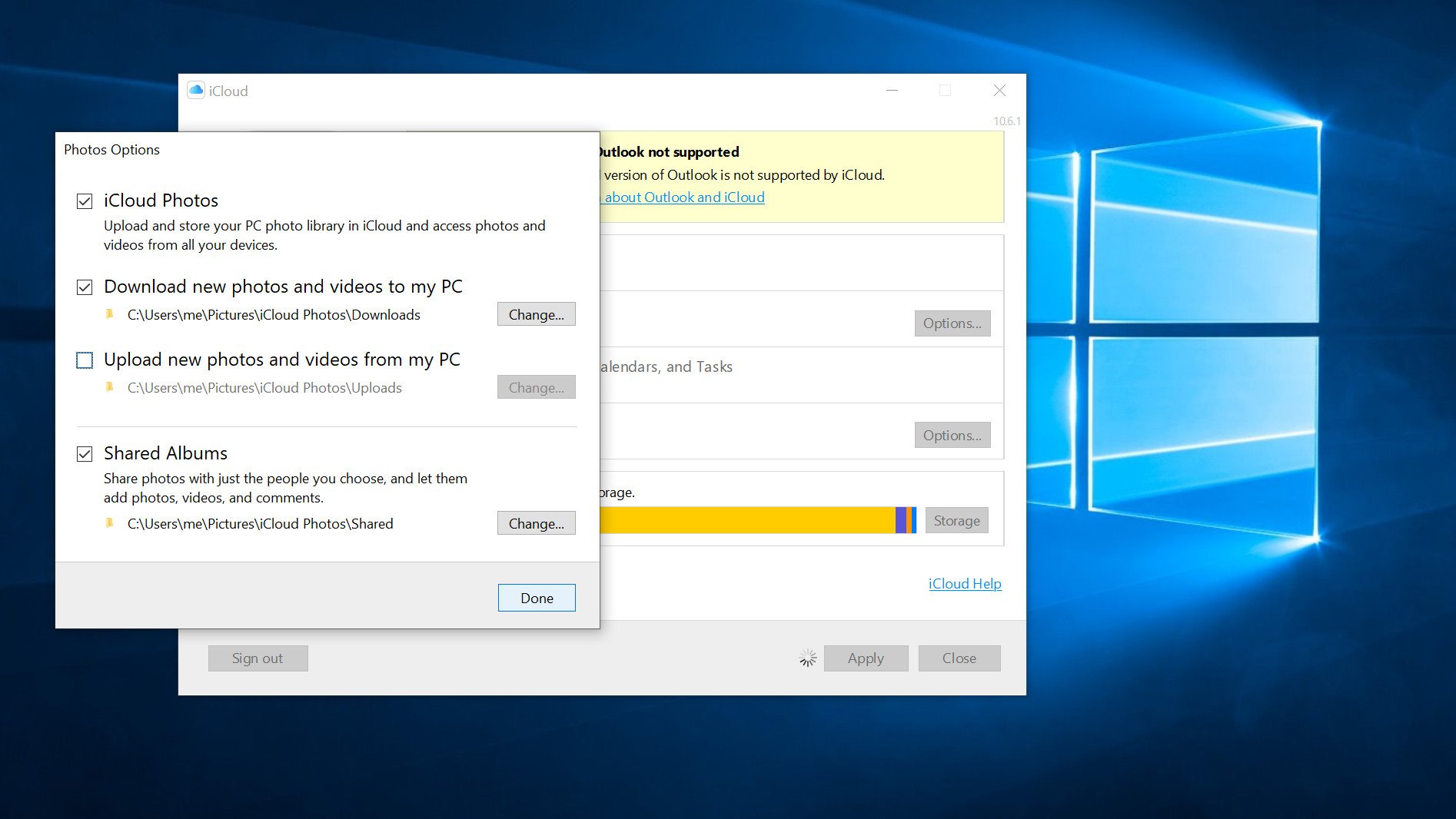 Source: Windows Central
Source: Windows Central - Click the box next to iCloud Photos so that a checkmark appears.
- Click the box next to Upload new photos from my PC so that the checkmark disappears. You can set these options how you'd like, but this ensures you're just getting the photos off your iPhone or iPad onto your PC.
- Click Done.
- Click Apply. Any photos in your iCloud will now download to your PC.
Alternatively, you can download iCloud from Apple if you're using a Windows version prior to Windows 10. Folks using older versions of Windows will need to install the traditional application, although it offers identical features.
Our top equipment picks
Transferring your iPhone and iPad photos over to PC with a trusty wired connection? This affordable cable could be for you.
Get Hooked Up
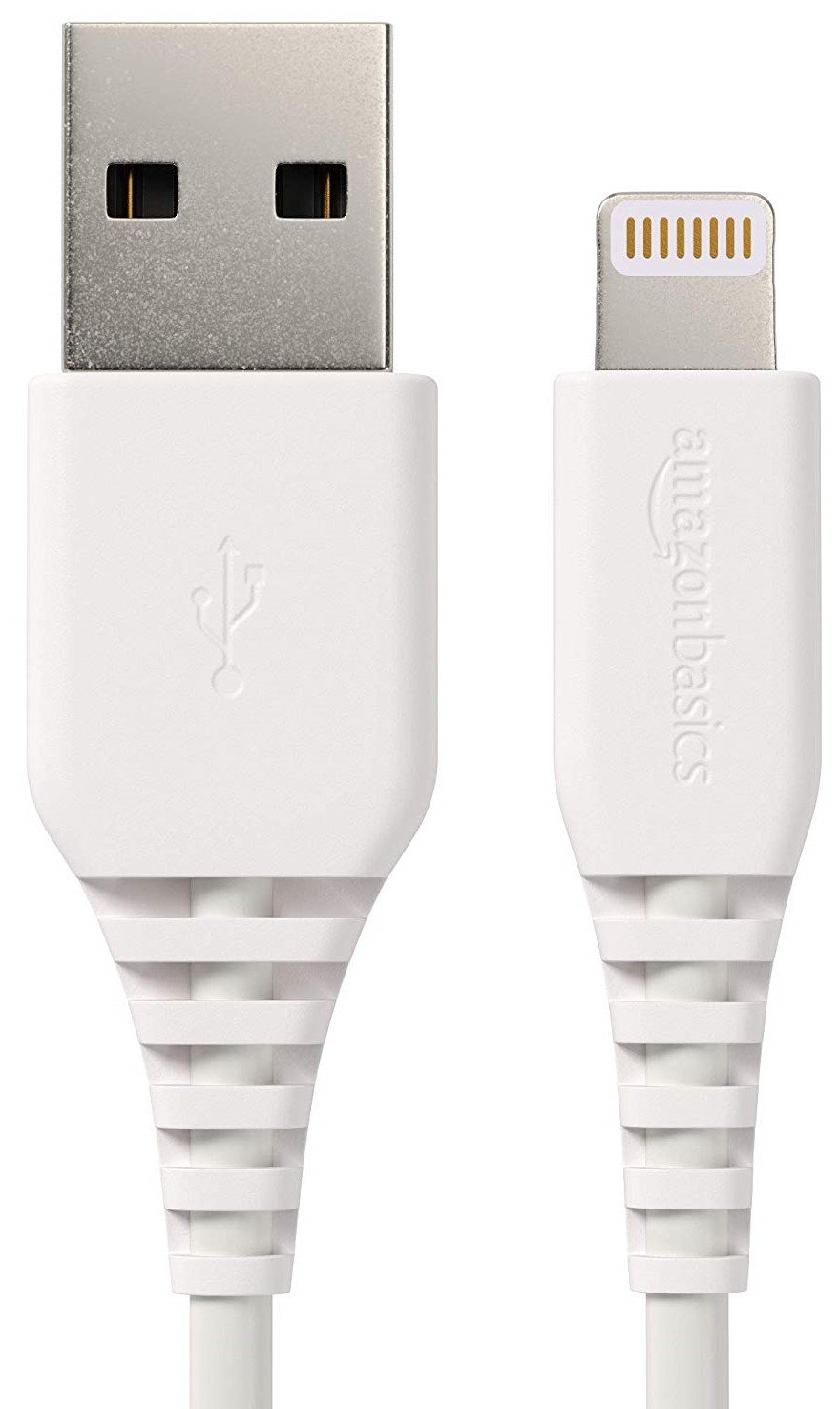
AmazonBasics Lightning to USB A Cable
Save on Apple's lightning cables.
While official iPhone accessories aren't cheap, Amazon's in-house product line has an affordable alternative without sacrificing quality. The four-inch cable is clutter-free for power packs, sporting Apple's MFi stamp of approval and a durable rubberized design.
Additional Software
Don't forget Apple's free Windows 10 apps, ideal for easy syncing between your phone and PC.
![]()
iTunes (Free at Microsoft)
iTunes welcomes Windows PCs into Apple's entertainment empire, serving up music, movies, TV shows, and more. The free Microsoft Store app also bridges your PC to iPhone and iPad devices with ease, packing capabilities to sync and update.
![]()
iCloud (Free at Microsoft)
iCloud's dedicated Windows 10 app brings your full cloud storage to a personal PC. It's fast and easy to set up, ideal for shifting snaps between devices.
We may earn a commission for purchases using our links. Learn more.
How Do I Transfer Photos From Iphone To My Computer
Source: https://www.windowscentral.com/how-transfer-photos-iphone-and-ipad-your-windows-10-pc
Posted by: farrararkmadesain.blogspot.com









0 Response to "How Do I Transfer Photos From Iphone To My Computer"
Post a Comment